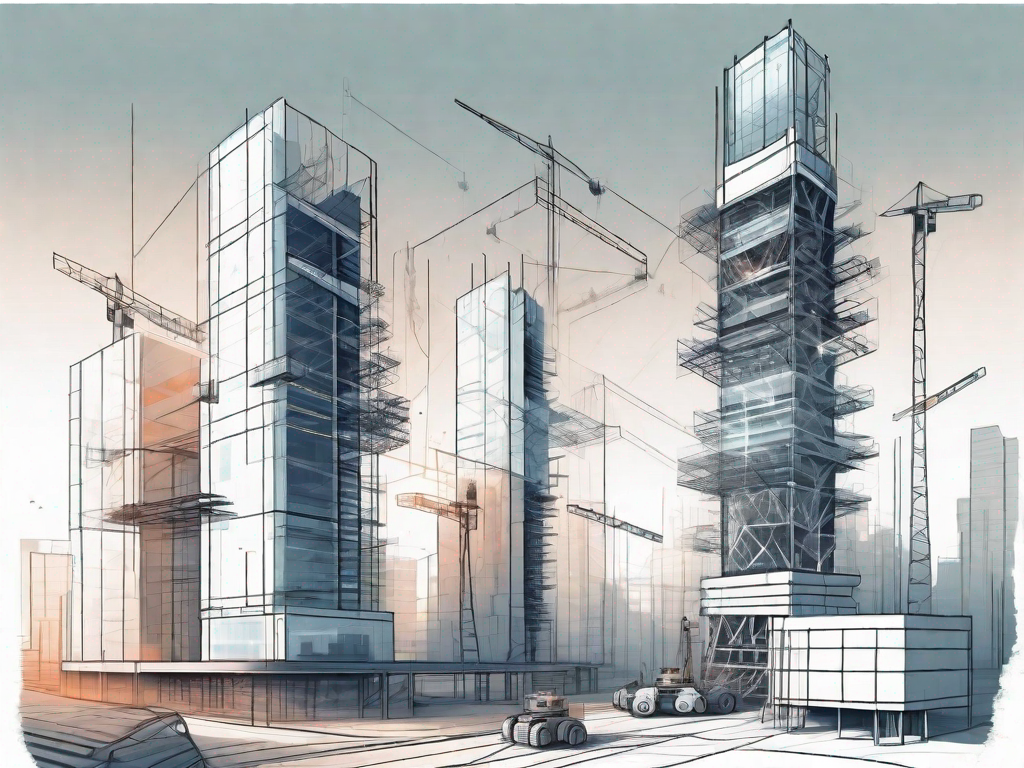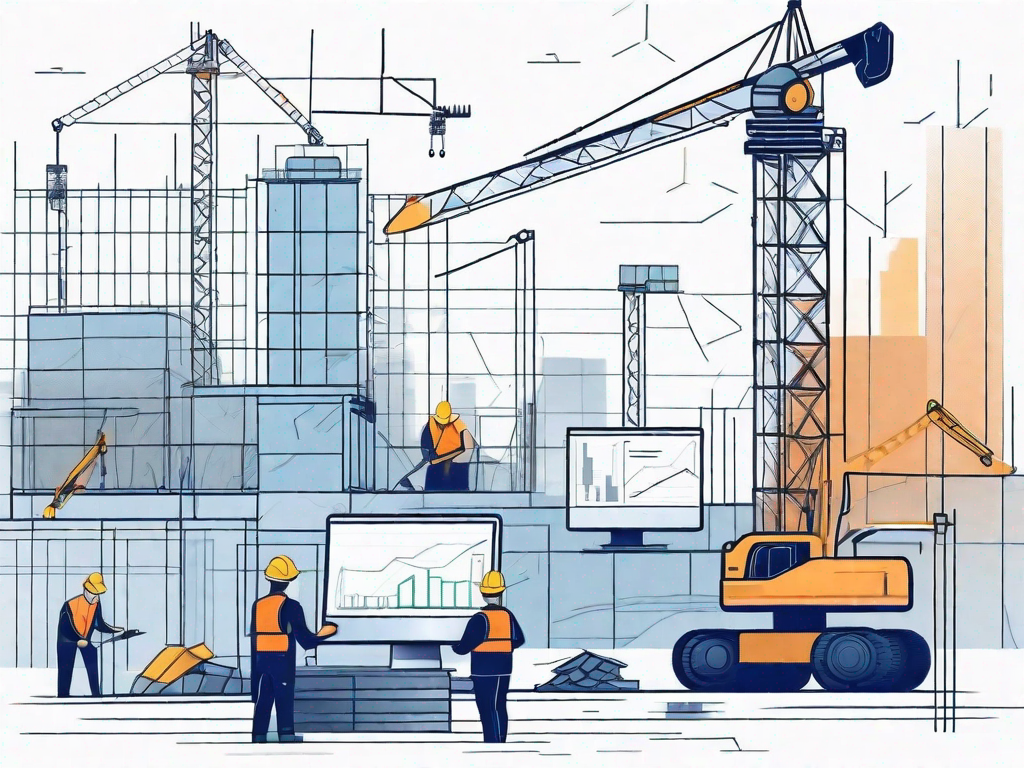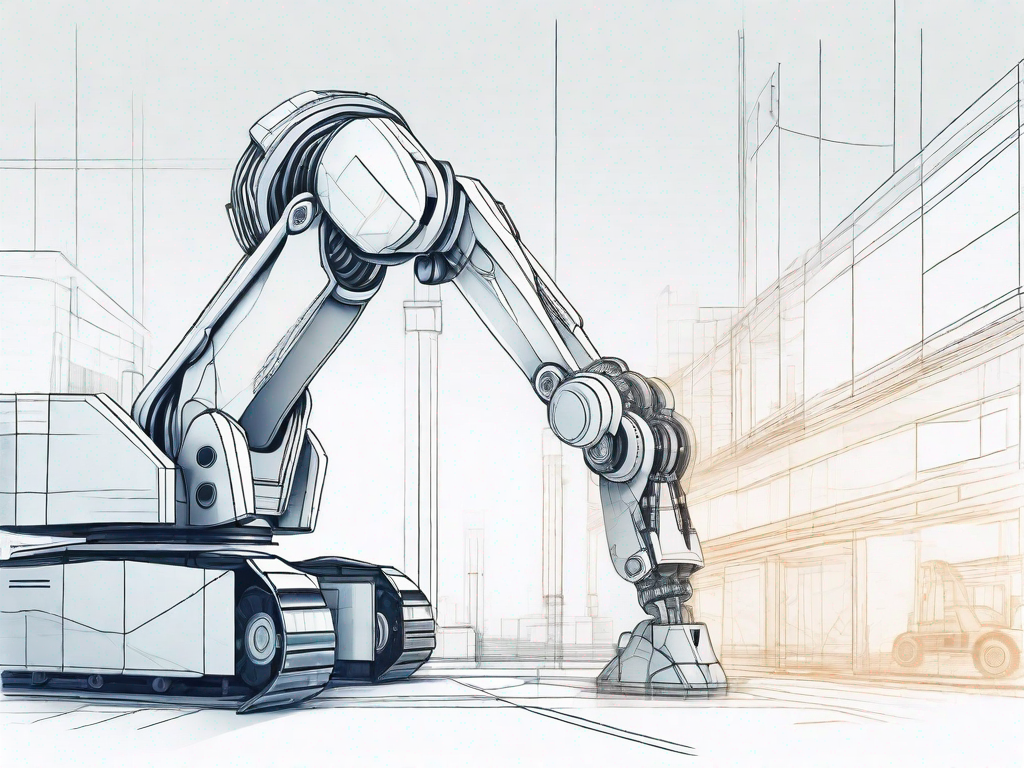Techniques of Tomorrow: AI's Modernization of Construction Methods
Technology is constantly evolving and transforming industries across the globe. One sector that stands to benefit significantly from the latest advancements is the construction industry. With the rapid integration of artificial intelligence (AI), construction methods are being revolutionized, paving the way for a more efficient, safer, and smarter future. In this article, we will explore the various ways in which AI is modernizing construction methods and shaping the techniques of tomorrow.
1. Introduction to AI in Construction
The growing role of artificial intelligence in the construction industry is undeniable. From project planning and design to safety monitoring and quality control, AI has the potential to streamline processes and enhance productivity. By leveraging massive amounts of data and complex algorithms, AI systems are able to analyze, learn, and make informed decisions, ultimately transforming the way construction projects are executed.
The growing role of artificial intelligence in the construction industry
Artificial intelligence is increasingly being used in construction due to its ability to automate repetitive tasks, improve accuracy, and enhance project management. From data analysis to predictive modeling, AI has the capacity to optimize various aspects of the construction process, saving time and resources while improving overall efficiency.
One area where AI is making a significant impact is in project planning. Traditionally, project planning involved manual calculations and estimations, which were prone to errors and delays. However, with the integration of AI, construction companies can now rely on advanced algorithms to analyze historical data, current market trends, and other relevant factors to generate accurate project timelines and cost estimates. This not only ensures better project management but also enables companies to make informed decisions regarding resource allocation and scheduling.
Moreover, AI is revolutionizing the design phase of construction projects. With AI-powered software, architects and engineers can create complex and innovative designs more efficiently. These software tools can generate multiple design options based on specific requirements and constraints, saving time and effort. Additionally, AI can analyze and optimize designs for factors such as energy efficiency, structural integrity, and cost-effectiveness, resulting in more sustainable and cost-efficient buildings.
Benefits of integrating AI into construction methods
The integration of AI into construction methods holds several benefits. Firstly, AI-powered systems can help identify potential issues and risks early on, allowing for proactive measures to be taken. This can greatly reduce the occurrence of delays and costly errors, resulting in improved project outcomes.
Furthermore, AI can assist in optimizing resource allocation, scheduling, and logistics. By analyzing historical data and real-time information, AI algorithms can determine the most efficient use of resources, such as materials and equipment. This not only minimizes waste but also improves project timelines and reduces costs. Additionally, AI can optimize logistics by considering factors such as traffic patterns, weather conditions, and transportation routes, ensuring timely delivery of materials and reducing construction delays.
Lastly, AI can enhance safety and quality control through real-time monitoring, early hazard detection, and defect identification. AI-powered sensors and cameras can continuously monitor construction sites, identifying potential safety hazards and alerting workers in real-time. Moreover, AI algorithms can analyze data from various sources, such as sensors and quality control inspections, to detect defects and deviations from design specifications. By detecting and addressing these issues early on, AI can ensure the well-being of construction workers and the overall quality of the project.
AI Applications in Construction
Artificial Intelligence (AI) is revolutionizing the construction industry, with its applications ranging from robotics and automation to predictive analytics and virtual reality. These advancements are transforming the way construction companies operate, leading to improved efficiency, accuracy, and collaboration.
One of the most significant areas where AI is making an impact in construction is robotics and automation. By deploying AI-driven robots and automated machinery, construction companies can achieve greater precision, speed, and efficiency in various tasks such as bricklaying, demolition, and material handling. These robots are equipped with advanced sensors and algorithms that allow them to work alongside human workers, enhancing productivity while minimizing the risk of injuries.
Imagine a construction site where robots effortlessly lift heavy building materials, precisely place them in the right locations, and work tirelessly day and night. With AI, this vision becomes a reality. These intelligent robots are capable of analyzing their surroundings, adapting to different environments, and collaborating with human workers to complete complex construction projects with unmatched efficiency.
Another application of AI in construction is machine learning for predictive analytics. By analyzing past project data, AI systems can identify patterns and make accurate predictions regarding project timelines, resource requirements, and potential risks. This enables construction companies to preemptively address challenges and make informed decisions, ultimately leading to better project outcomes.
Imagine a construction manager who can rely on AI algorithms to accurately forecast project timelines, allocate resources effectively, and identify potential bottlenecks before they occur. With AI-powered predictive analytics, construction companies can optimize their project planning and execution, minimizing delays, cost overruns, and other unforeseen issues.
Additionally, virtual reality (VR) and augmented reality (AR) are being increasingly utilized in construction planning and design. By creating immersive visualizations and simulations, AI-powered VR/AR systems enable construction professionals to visualize and fine-tune designs before construction begins. This not only helps in avoiding costly revisions but also facilitates effective communication and collaboration among project stakeholders.
Imagine architects and engineers being able to step into a virtual construction site, walk through buildings that exist only in the digital realm, and identify potential design flaws or clashes before any physical construction takes place. With AI-powered VR/AR systems, construction professionals can save time, reduce errors, and ensure that the final built environment meets the highest standards of quality and functionality.
In conclusion, AI is transforming the construction industry by revolutionizing robotics and automation, enabling predictive analytics, and enhancing visualization and collaboration through virtual reality and augmented reality. As technology continues to advance, we can expect AI to play an even more significant role in construction, pushing the boundaries of what is possible and revolutionizing the way we build our world.
AI-Driven Construction Planning and Design
AI has the potential to revolutionize construction planning and design by providing intelligent assistance throughout the entire process. With the ability to analyze vast amounts of data and make informed recommendations, AI systems can greatly enhance the efficiency and effectiveness of construction projects.
AI-assisted site analysis and selection
One area where AI can greatly assist in construction planning is site analysis and selection. Through the analysis of vast amounts of data, including geological information, environmental factors, and historical project data, AI systems can provide valuable insights and recommendations for optimal site selection.
For example, AI algorithms can analyze geological data to assess the stability and suitability of potential construction sites. By considering factors such as soil composition, seismic activity, and water table levels, AI can identify sites that are less prone to natural disasters and other risks. This information can help construction companies minimize risks and ensure the safety and durability of their projects.
In addition, AI systems can also analyze environmental factors such as air quality, noise levels, and proximity to amenities. By considering these factors, AI can recommend sites that are more conducive to the well-being of future occupants. For instance, AI can identify sites with better air quality and lower noise levels, which can contribute to improved living and working environments.
Furthermore, AI can leverage historical project data to identify patterns and trends that can inform site selection. By analyzing the success and failure factors of previous projects in similar locations, AI can provide valuable insights into the potential challenges and opportunities associated with different sites. This information can help construction companies make more informed decisions and increase the likelihood of project success.
AI-powered architectural design and optimization
Architectural design is another area where AI's potential is being realized. By leveraging AI algorithms, architects and designers can optimize design parameters based on various factors such as energy efficiency, material usage, and cost-effectiveness.
For instance, AI can analyze building energy simulations to identify design modifications that can improve energy efficiency. By considering factors such as insulation, natural lighting, and HVAC systems, AI can suggest design changes that can reduce energy consumption and lower operating costs. This not only benefits the environment but also offers long-term cost savings for building owners and occupants.
In addition, AI can analyze material usage patterns and recommend alternative materials that are more sustainable and cost-effective. By considering factors such as durability, availability, and environmental impact, AI can help architects and designers make informed choices that promote sustainable construction practices.
Moreover, AI can assist in the exploration of innovative and creative design solutions. By analyzing vast amounts of design data, including architectural styles, historical references, and user preferences, AI can generate design options that push the boundaries of creativity. This can inspire architects and designers to think outside the box and create unique and visually appealing structures.
AI-based construction project scheduling and resource allocation
Efficient scheduling and resource allocation are crucial for the success of construction projects. AI systems can analyze project parameters, historical data, and real-time information to generate optimized schedules and allocate resources effectively.
For example, AI can analyze project timelines, dependencies, and resource availability to generate schedules that minimize project delays. By considering factors such as weather conditions, labor availability, and equipment availability, AI can identify potential bottlenecks and suggest alternative scheduling options. This can help construction companies deliver projects on time and avoid costly delays.
In addition, AI can analyze historical data on resource usage and availability to optimize resource allocation. By considering factors such as resource utilization rates, material lead times, and supplier performance, AI can suggest strategies to minimize wastage and ensure timely availability of resources. This can help construction companies achieve cost savings and improve overall project efficiency.
Furthermore, AI can leverage real-time information from sensors and IoT devices to monitor project progress and adjust schedules and resource allocation accordingly. By analyzing data on construction site conditions, equipment performance, and labor productivity, AI can provide real-time insights that enable proactive decision-making and problem-solving. This can help construction companies address issues promptly and maintain project timelines.
In conclusion, AI-driven construction planning and design offer immense potential for improving the efficiency, sustainability, and success of construction projects. By leveraging AI's analytical capabilities and data-driven insights, construction companies can make more informed decisions, optimize design parameters, and allocate resources effectively. As AI continues to advance, its role in construction planning and design is expected to grow, leading to even more innovative and transformative solutions in the industry.
AI-Enhanced Construction Safety and Quality Control
Ensuring the safety of construction workers is of utmost importance, and AI systems are playing a significant role in enhancing safety monitoring and hazard detection.
AI-enabled safety monitoring and hazard detection
AI-powered systems can monitor construction sites in real-time, analyzing data from various sensors and cameras to detect potential safety hazards. By identifying risks such as falling objects, unsafe scaffolding, or uneven terrain, AI can alert workers and supervisors, enabling swift corrective actions to be taken. This proactive approach to safety can help prevent accidents and save lives.
Quality control and defect detection using AI algorithms
Quality control is another critical aspect of construction, and AI algorithms can assist in detecting defects and ensuring adherence to quality standards. Computer vision systems powered by AI can analyze images and videos to identify issues such as cracks, inconsistencies, or structural deviations. By automating the inspection process, AI can save time and improve the accuracy of defect detection, leading to higher-quality construction projects.
AI-driven predictive maintenance and equipment monitoring
Maintenance of construction equipment is essential to prevent costly breakdowns and delays. AI systems can monitor the performance of equipment, detecting anomalies and predicting maintenance needs. By leveraging AI-driven predictive maintenance, construction companies can minimize downtime, optimize equipment usage, and reduce maintenance costs, ultimately improving project timelines and profitability.
As construction methods continue to evolve, embracing AI's modernization is crucial for the industry's advancement. By harnessing the power of artificial intelligence across various aspects of construction, companies can achieve greater efficiency, enhanced safety, and improved project outcomes. The future of construction is undeniably intertwined with AI, and embracing these techniques of tomorrow will pave the way for a smarter, more sustainable, and prosperous industry.




